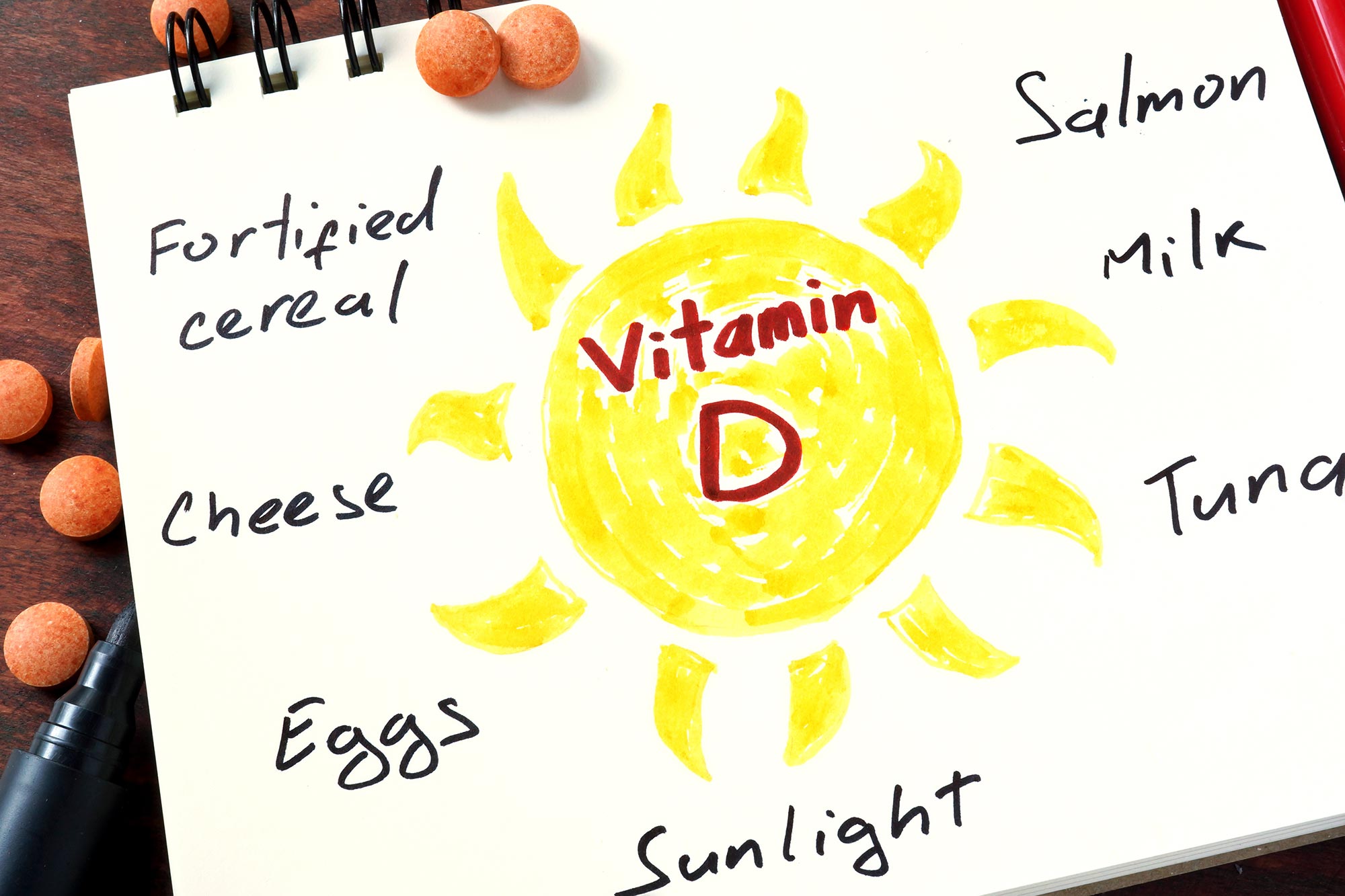
Vitamin D is a fat-soluble vitamin that you can get from several types of food or supplements. Unlike other types of vitamins, vitamin D can be produced in the body when the skin is directly exposed to sunlight. Therefore, vitamin D is often referred to as the sunshine vitamin.
With its role in increasing the absorption of calcium and phosphate, vitamin D is really important in maintaining healthy bones and teeth. This vitamin also plays a role in maintaining the health of the immune system, brain and nervous system. Given its important role for the body, vitamin D deficiency can have a negative effect on overall health. Lack of vitamin D in the body can cause bones to become brittle and can increase the risk of diabetes, cardiovascular disease, and cancer.
In a recent study conducted by the Bloomberg School of Public Health at Johns Hopkins University, it was showed that vitamin D deficiency in children from birth to early age is associated with an increased risk of high blood pressure in childhood and adolescence. The researchers analysed 775 children enrolled in the Boston Medical Center, starting from birth to 18 years old. Participants were declared to have deficiencies if they had vitamin D levels of less than 11 ng / ml at birth and less than 25 ng / ml during childhood.
Compared to those born with sufficient vitamin D levels, they have a 60% higher risk of high systolic blood pressure at the age of 6-18 years. For those who continue to experience a decline in vitamin D levels, the risk is doubled at the age of 3-18 years. The systolic number shows how much pressure is given by the blood to the artery wall when the heart beats. An increase in systolic numbers can increase the risk of cardiovascular related diseases.
The recommended intake of vitamin D per day for infants aged 1 - 12 months is 10 mcg, while for children aged 1-18 years old, it is 15 mcg.
Text by Anggie Triana
Stock photos from Google Search Images
Source(s):
- Guoying, W., Xin, L., Tami, R.B., et all (2019). Vitamin D Trajectories From Birth to Early Childhood and Elevated Systolic Blood Pressure During Childhood and Adolescence. Hypertentsion, DOI: 10.1161 / HYPERTENSIONAHA.119.13120.
- Science Daily - Low vitamin D at birth raises the risk of higher blood pressure in kids (2019). https://www.sciencedaily.com/releases/2019/07/190701144254.htm, 8 July 2019.